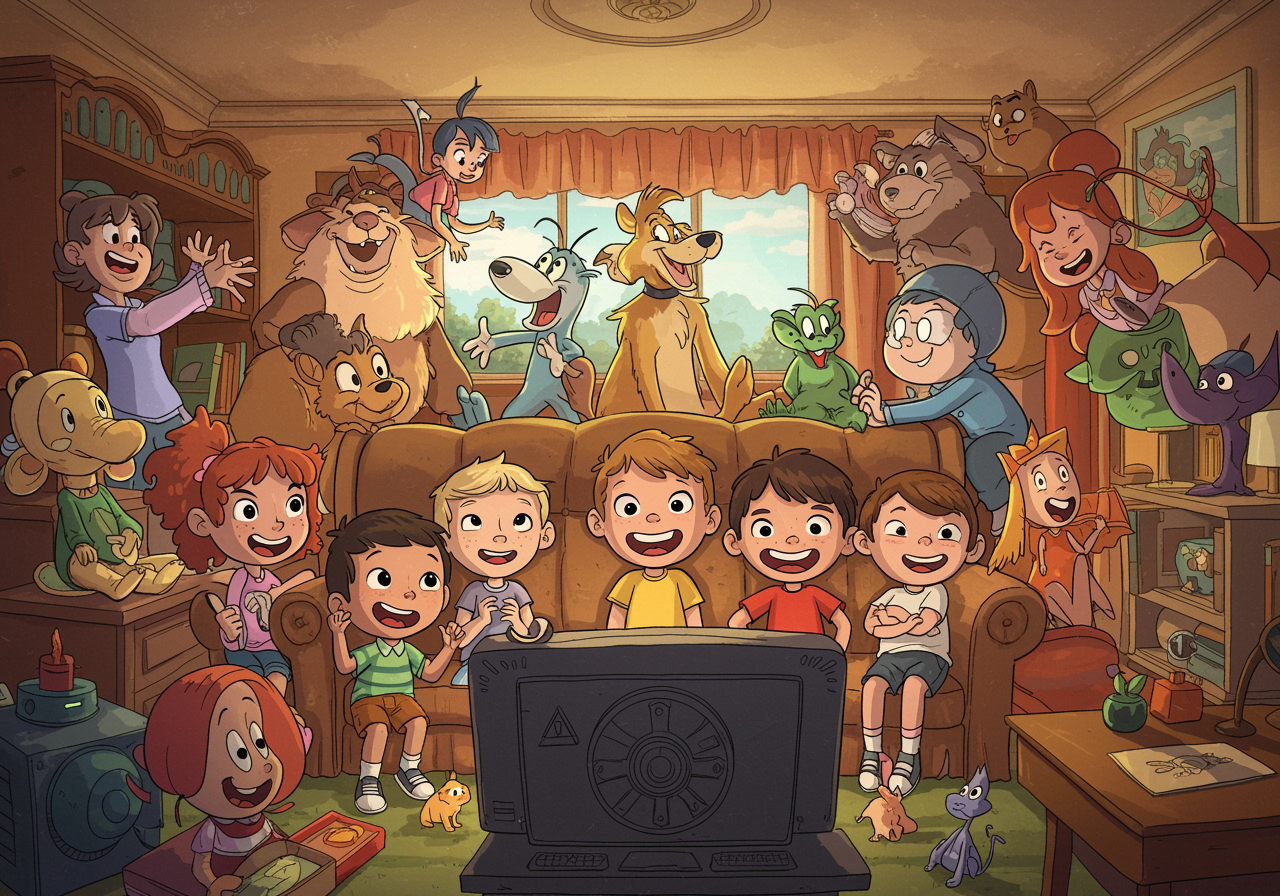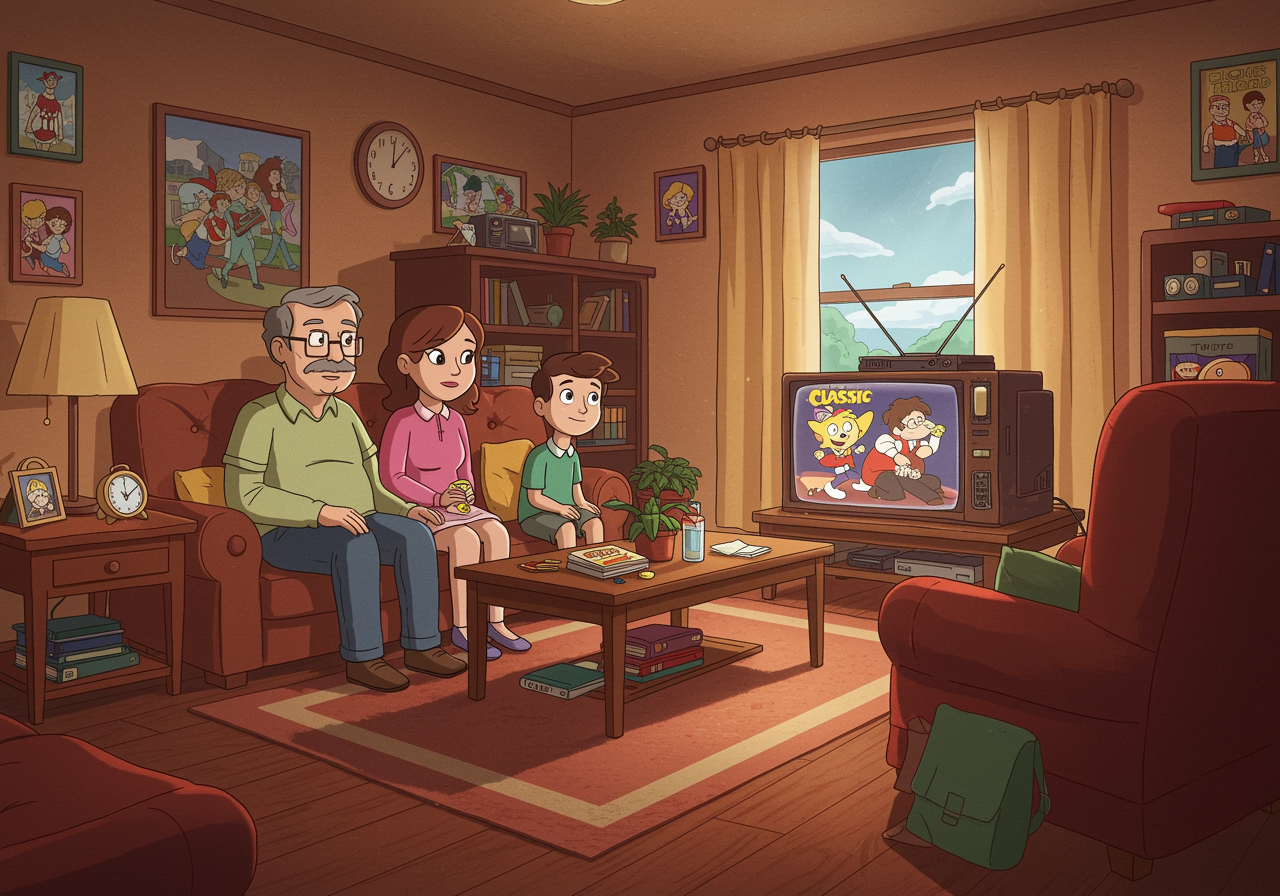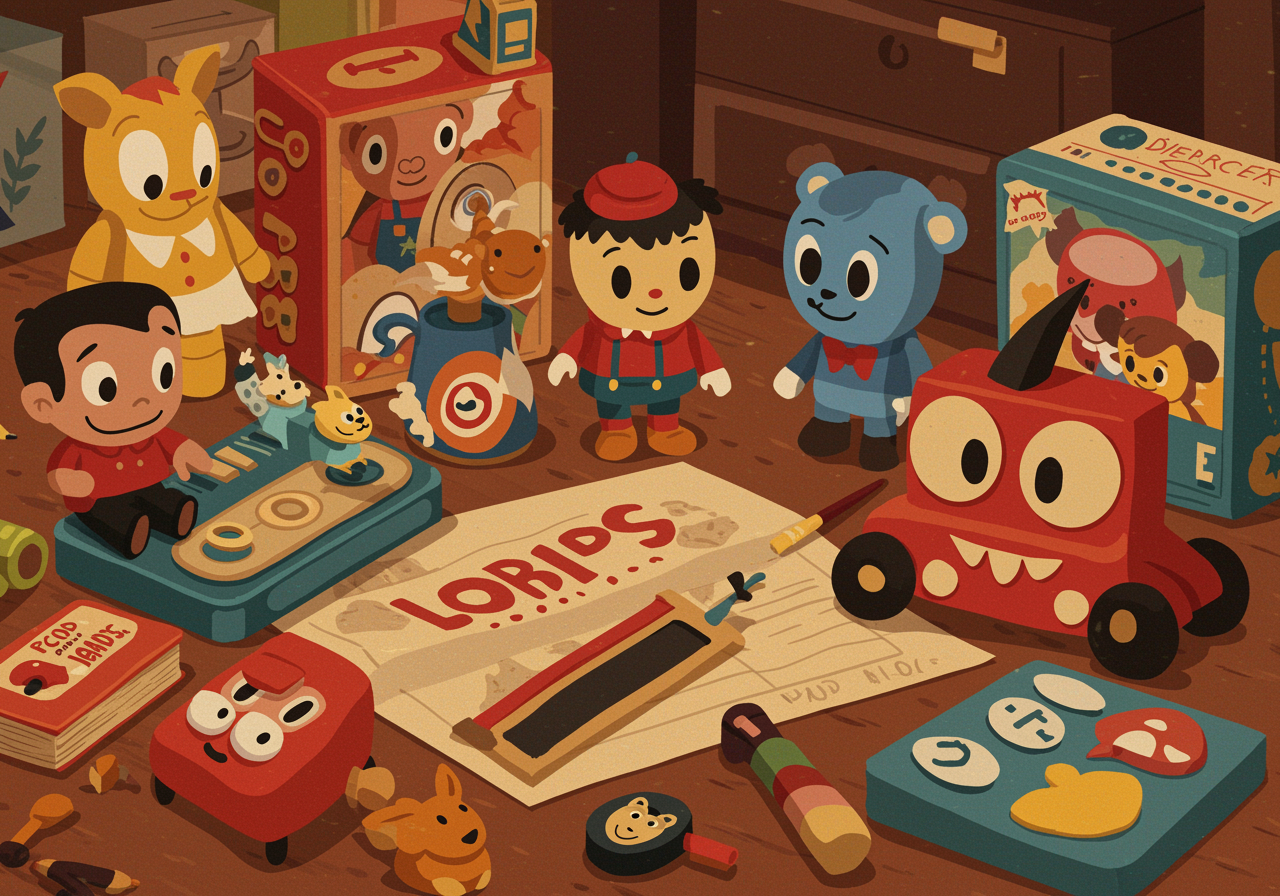Why Your Favorite Childhood Cartoons Still Make You Smile

The magical connection between animated shows and our hearts
Discover why both you and your child get excited when you see characters from shows you loved growing up, and how these animated friends create lasting memories.
Overview
Think about the last time you saw a character from a show you loved as a kid – maybe SpongeBob, Pokemon, or even classic cartoons your parents watched. That warm, happy feeling you get? That's nostalgia at work! It's like a time machine for your emotions, instantly transporting you back to simpler times. Understanding why we connect so deeply with childhood shows helps families appreciate how entertainment shapes our memories and bonds us together across generations.

Understand in 30 Seconds
Get up to speed quickly
- Nostalgia is Your Brain's Happy Button: When you see something from your childhood, your brain releases feel-good chemicals that make you remember being safe, loved, and carefree.
- Animated Shows = Emotional Time Capsules: Cartoons capture exactly how you felt at a specific age, storing those emotions like a snapshot you can revisit anytime.
- Shared Shows Build Family Bridges: When parents and kids watch the same shows (even years apart), it creates instant connection and understanding between generations.
- Your First Shows Shape Your Taste Forever: The animated series you love as a child often influence what kinds of stories, humor, and characters you enjoy for the rest of your life.
Real Life Scenario
Situations you can relate to
Imagine walking through a store and suddenly hearing the theme song from a cartoon you watched every Saturday morning as a kid. Instantly, you're transported back to sitting in your pajamas, eating cereal, without a care in the world. Your parent might smile and say, 'I remember watching that with you!' This is nostalgia in action – it's your brain's way of preserving the good times. But here's the cool part: your teen is probably already experiencing this too! Maybe they get excited seeing characters from shows they watched in elementary school. Have you ever noticed how certain cartoon characters make you both happy for completely different reasons? That's because each of you connects that character to your own special memories and feelings from when you first discovered them.

Role Play
Spark a conversation with “what if” scenarios
What if you could step inside your favorite childhood cartoon for a day?
- Role play: Take turns describing what you'd do in that animated world and why that particular show made you feel safe or excited as a kid.
What if you had to explain to an alien why humans get emotional about cartoon characters?
- Role play: Practice explaining nostalgia by describing how a drawing on a screen can make people remember being young, happy, and loved.
What if you could create a 'nostalgia museum' of your family's favorite shows?
- Role play: Design exhibits together, with each person curating a section about shows from their childhood and explaining why they were special.
FAQs
Frequently asked questions people want to know
Is it weird that I still like 'kid shows' as a teenager?
Not at all! Enjoying childhood favorites is totally normal and healthy. They're connected to happy memories and there's nothing wrong with revisiting things that make you feel good.
Why do some old cartoons look so different from new ones?
Animation styles change with technology and cultural trends. What looked cutting-edge in the past might seem simple now, but that's part of their charm and nostalgic appeal.
Can nostalgia ever be bad for you?
Nostalgia is usually positive, but if someone only wants to live in the past and can't enjoy new things, that might be a problem. Balance is key!
Examples in the Wild
See how this works day to day
- Disney+ and other streaming services have seen huge success with both classic content and reboots because families want to share nostalgic shows together (Entertainment industry reports 2023)
- The Pokemon franchise continues to thrive partly because parents who played the original games now share them with their children (Gaming industry analysis 2023)
- Shows like 'SpongeBob SquarePants' have multi-generational fan bases, with college students and adults still watching episodes from their childhood (Nickelodeon viewership studies)
- Nostalgic cartoon merchandise (clothing, toys, collectibles) has become a billion-dollar market as adults buy items featuring their childhood favorites (Retail market research 2023)
In Summary
What you should know before you start
- Nostalgia is your brain's way of preserving happy memories and making you feel good when you revisit childhood favorites
- Animated shows create powerful emotional connections because they're tied to feelings of safety, joy, and wonder from when you were young
- Both parents and teens can experience nostalgia – it's a universal human experience that helps families connect across generations
- There's nothing wrong with loving childhood shows as you get older; they're part of who you are and what makes you happy
Pro-tip for Parents
You got this!
If your teen seems embarrassed about still liking 'kid shows,' share your own nostalgic favorites! When you openly talk about how certain cartoons make you feel, it gives your child permission to embrace their own nostalgic feelings. Remember, nostalgia isn't about being immature – it's about honoring the experiences that shaped you. Consider having regular 'throwback nights' where family members take turns picking an old favorite to watch together.

Keep an Eye Out For
Find these examples in everyday life
- When streaming services announce new seasons or reboots of classic shows – these are perfect conversation starters about why certain characters remain popular
- Notice when your teen gets excited about seeing old cartoon characters in memes, merchandise, or social media – ask them what memories those characters bring up
- Pay attention to movies or shows that blend old and new animation styles – these often spark great discussions about how entertainment evolves while keeping nostalgic elements
Explore Beyond
Look up these related research topics
- How music from movies and TV shows can instantly transport us to different times in our lives
- The psychology behind why we form emotional attachments to fictional characters
- How different generations define 'classic' entertainment and why those definitions keep changing